We’ve convened a jury of 13 to deliberate over the (in)famous Adventures of Superman episode…
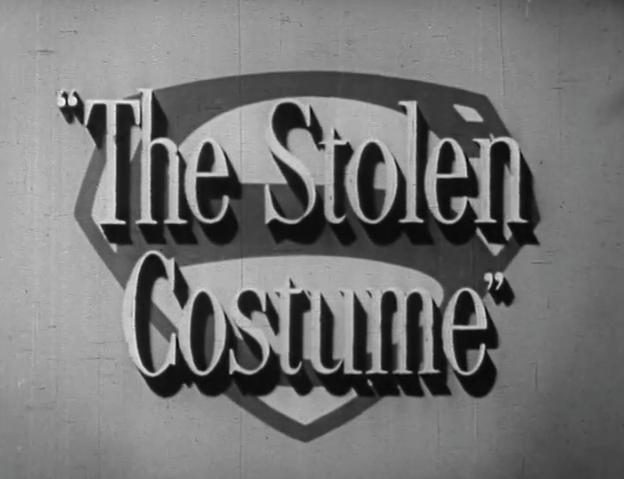
Dig this, folks: Our pal Anthony Desiato, host of the podcast Another Exciting Episode in the Adventures of Superman, had me on to discuss what is perhaps the George Reeves series’ most notorious episode — Season 1’s “The Stolen Costume.” (Thanks, Anthony!)
You know the ep. It’s the one where Superman — SPOILER ALERT for a 71-year-old episode from 1952 — strands two criminals who have discovered his secret identity at the top of a snowy mountain, only for them to die trying to escape.
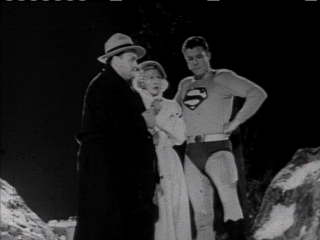
On the whole, it’s one of Adventures of Superman’s most compelling episodes and Anthony and I went to town discussing it, from beginning to end. Naturally, though, we spent a decent time debating (tongue-in-cheek) whether Superman had committed any crime — in particular, murder. Click here for a listen or check out the YouTube version on Monday (or both!).
But that’s not all! For kicks, we’ve convened a jury of 13 Superman experts, who give their own verdicts below — including 13th Dimension columnist Paul Kupperberg, who has written dozens of Superstories across the decades, as well as the top Superpodcasters on the web. (Links to everyone’s podcasts, latest published works or whatnot are included!)
Court is now in session. Read on!

—
Paul Kupperberg, author of Direct Conversations: Talks with Fellow DC Comics Bronze Age Creators and 13th Dimension columnist:
When I originally saw “The Stolen Costume” as an 8- or 9-year-old, I didn’t have any trouble with the resolution. It was a pretty open and shut moral situation: Ace and Connie were criminals trying to blackmail the ultimate good guy. It made sense that Supeman would shut them away somewhere until he could think of a way to handle them, but he certainly didn’t mean them any harm. To my eyes, Ace was a crook and, worse, a bully, who deserved anything he got; I think I even took satisfaction in his death being his own fault for defying Superman’s orders, even if I was too young to know how hubris worked and not sophisticated enough to recognize how morally reductive the whole situation was.
But outside of the black-and-white ethics of 1950s TV kids’ shows, there’s nothing right, ethically, or characteristically, about Superman’s behavior leading up to the fatal denouement of the episode. If nothing else, he’s guilty of kidnapping, forcible restraint, and probably negligent manslaughter. Years later, after I’d written dozens of Superman stories for the comics, I would wonder why, in a series where the Man of Steel exhibited any number of random abilities of convenience (splitting himself in two, super-levitation, walking through walls, etc.) he didn’t do what I imagined my old editor Julie Schwartz would have immediately thought of as a non-lethal resolution: super-hypnosis.

—
Scott Tipton, co-author of Star Trek: The Mirror War from IDW and 13th Dimension contributor-at-large:
OK, wow. That’s just straight-up murder.
All right, maybe not murder per se, but at the very least we’re talking manslaughter and reckless endangerment. Even if Superman’s intentions were honest and he really was going to come back with food and supplies, it’s still kidnapping, imprisonment and a half-dozen other offenses that could be applied when you just fly someone to the North Pole and abandon them on a dangerous mountain peak. He could have left them on a desert island, but no, he goes for Everest. If nothing else, this sort of thing should get you kicked out of the Justice League. I mean, they were going to boot out Barry Allen for less, and his actions were totally justified.
Honestly, it wouldn’t be so bad if Clark Kent weren’t so smugly cheerful at the end. I mean, look at that smirk. Guilty, guilty, guilty.
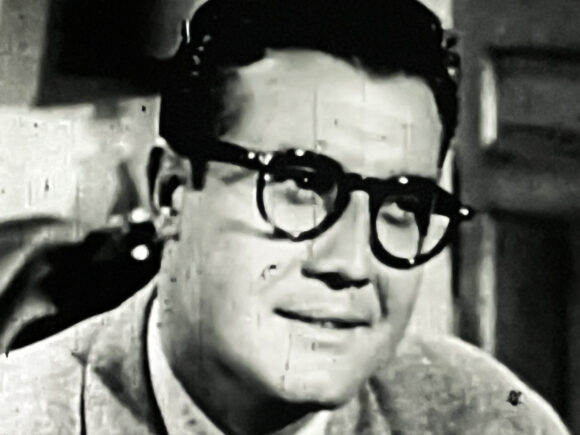
—
Peter Bosch, author of American TV Comic Books: 1940s-1980s – From the Small Screen to the Printed Page and 13th Dimension contributor-at-large:
I think it is tricky, but there are likely a number of possible crimes here. First, though, it would need to come out that Clark Kent is Superman. After After all, it was Clark who committed Breaking and Entering into the blackmailers’ apartment. And it was Clark who committed Assault on Candy, the private eye, but I don’t think Candy would press charges…besides, it was too fast for Candy to see who knocked him out. However, Superman, like O.J. Simpson, could be charged for trying to reclaim what is his and get convicted on Armed Robbery (his body is a deadly weapon) and Kidnapping. It would be up to a jury to decide if the kidnappers fell off the cliff in the Arctic or if Superman threw them off. Of course, they might just charge him with being an illegal alien. Boy, it’s difficult trying to be a superhero.

—
Zach Moore, host of the Always Hold On To Smallville podcast:
The crooks are 100 percent responsible for their own deaths. If they’d just listened to Superman and waited in the shelter that he’d taken them to, Superman would’ve come back with more supplies like he promised. I’m not surprised the head criminal had the attitude that he did about Superman really leaving them there to die, but his impatience in immediately trying to escape is on him, not Superman. And his poor girlfriend clearly just deferred to him in all this; if it was just her, she wouldn’t have tried to climb down. A tidy ending for Clark Kent with them no longer being alive to give up his secret, but still not his fault.
![]()
—
Ed Gross, author of Voices from Krypton: The Unofficial, Unauthorized Oral History of Superman, coming from Nacelle Books in May 2023:
If I can’t call him a murderer for killing Zod (albeit for the greater good) at the end of Man of Steel, I really can’t call him a murderer of Ace and Connie in “The Stolen Costume.” Careless? Maybe. Cunning? More likely (he had to know that the mobster and his moll weren’t going to stay put). Out of character? Definitely — though maybe not for that first season of Adventures of Superman. In retrospect, it feels more like something Homelander from The Boys would do, only he’d be laughing as he flew off.

—
Junia and Tyler Patrick, hosts of The Krypton Report:
Criminals by nature put themselves in situations where their actions have consequences. The criminals were given explicit instructions to follow — they chose with their own free will to attempt to climb down, resulting in their death. Had they listened, they would have lived. Thus, Superman is free of guilt.

—
Rich Roney, guest on Another Exciting Episode in the Adventures of Superman:
I don’t think Superman was a murderer, but I remember being troubled by his lack of remorse — his lack of sympathy — when I watched this as a child in the mid-’60s. He seemed far too happy in the last frames of the episode. Very different from his portrayal in the concurrent Silver Age comics.
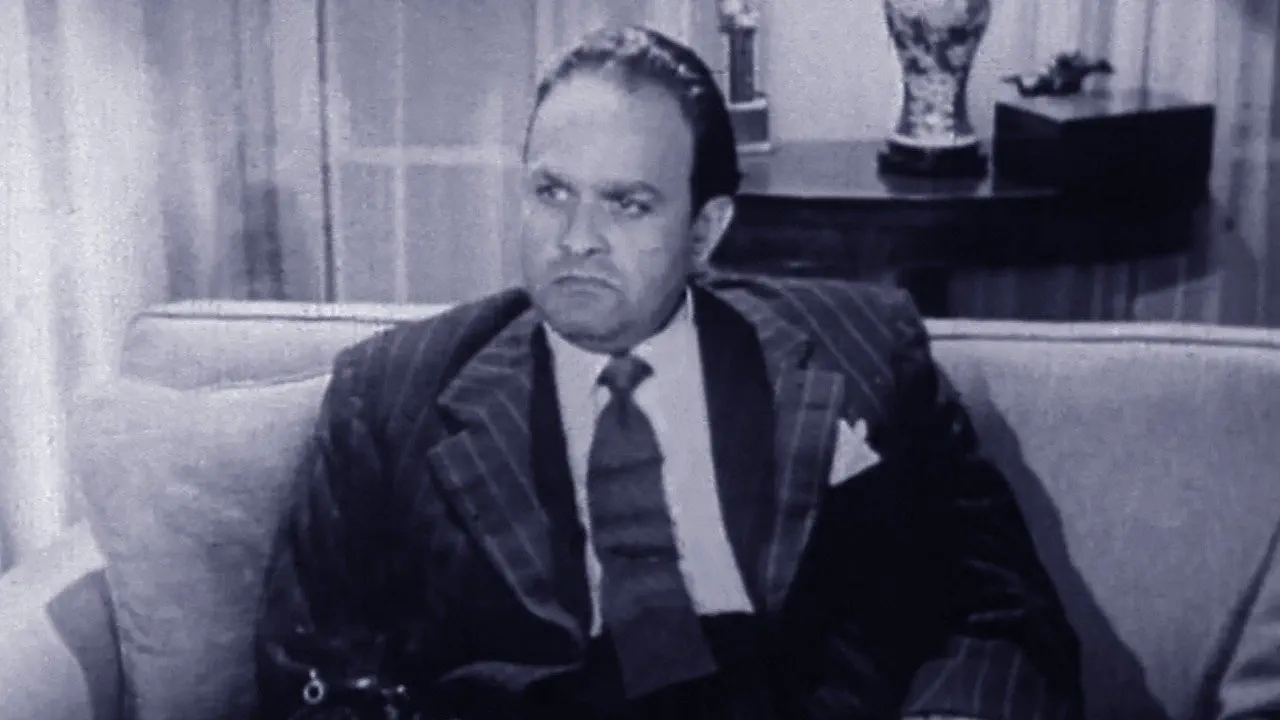
Not Rich Roney
—
Daniel Sanchez, Superman cosplayer:
Superman violated NY Penal Law § 125.25 (2) — Depraved Indifference Murder in the Second Degree — when he “recklessly engaged in conduct which created a grave risk of death to another person, and thereby caused the death of that person [or of a third person].”
The two criminals would never have died on that icy mountaintop if Superman hadn’t taken them there against their will when he certainly had other options of what to do with them. I love Superman with all my heart. But he did a bad thing, people died who didn’t have to die, and it WAS his fault.
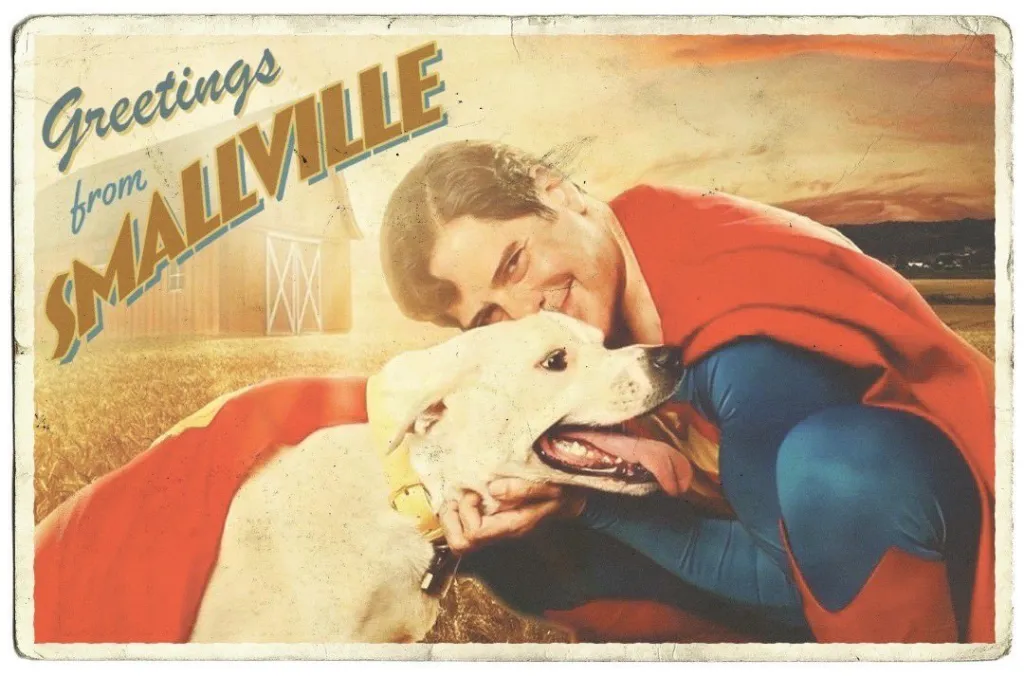
—
Michael Bailey, host of the podcast From Crisis to Crisis: A Superman Podcast):
I would not convict him of murder, as murder, in a legal sense, requires intent. Superman did not intend for them to die as he told them he would bring back supplies. I would find him guilty of involuntary manslaughter, as Superman kidnapped the individuals, which is a crime, but did not intend for them to die.

—
Rob O’Connor (co-host of All-Star Superfan Podcast):
If we assume that Superman’s super hearing is powerful enough that he could hear the two criminals’ cries of distress as they struggle to escape the mysterious hilltop hideaway where Superman has left them, we can come to no other conclusion than that he is absolutely a party to their gruesome deaths.
If, however, Superman didn’t hear their screams (the range of his super hearing is unpredictable at best in this series and indeed most live-action versions), we can assume ignorance on his part. I don’t think imprisoning these villains in a warm cabin with food and water can be deemed murder — wildly unethical false imprisonment and inexcusable kidnap, absolutely, but murder? Nah. Barry Allen falsely imprisoned dozens of baddies in his TV show!

—
Jon Wilson, host of Superman in Crisis:
Superman never kills people, except for all the times he does. Despite the lip service paid to taking care of the crooks, Superman leaves them in a highly precarious situation where survival is chancy at best. “Everyone knows Superman don’t kill people” (as Ace proclaims) is an idea that wasn’t said much in the comics at this point. And when Superman does need to fully destroy a threat, there are often rationalizations provided to make it seem OK. Like when Superboy kills Bizarro because Bizarro supposedly isn’t alive in the first place, despite all evidence to the contrary. Superman is definitely responsible for the deaths of these two because he’s responsible for their being in the dangerous situation. When you’re responsible for someone’s death, that’s called killing. If not legally murder, it’s at least manslaughter. And in the history of the character, it’s far from an isolated case.

—
Chris Clow, host of the YouTube show The Comic Binge):
On the philosophical front, my answer comes down to another question: Is one person responsible for the willful actions of another? Since Superman is fictitious, we have the benefit of knowing that he absolutely means it when he says he does not lie. I see no reason to think that Superman would have orchestrated the deaths of the costume thieves by placing them in that situation. He gave them every opportunity to live comfortably until he could determine with certainty what next steps should be taken. The choice of the thieves to gamble their lives on a slim escape opportunity means the choice — and their deaths — are their responsibility. Even an argument that might form around the basis of Superman putting them at risk falls flat to me, because they inserted themselves into his affairs. My verdict is that Superman is innocent. I certainly wouldn’t prefer him to be in this situation often, but I do think there is enough to absolve him of direct responsibility for their deaths.

—
Jim Nolt, publisher of the website The Adventures Continue:
Looking at it realistically… yes, it’s quite obvious that Superman kidnapped two people and held them against their will. And that also brings to mind a scene near the end of “The Haunted Lighthouse,” where Superman steps aside and allows Mac to fall to his death. (At least many people believe he died in the fall, although admittedly, that is not made clear.) But getting back to “The Stolen Costume” — television stories are surely not reality. Examples in Superman abound. Henderson breaks into Madame Selena’s museum and demands to look around without a warrant. Superman frequently comes breaking through windows and doors uninvited and unannounced. He knocks Luigi Dinelli out and flies him to the studio. First season Superman was definitely a vigilante.
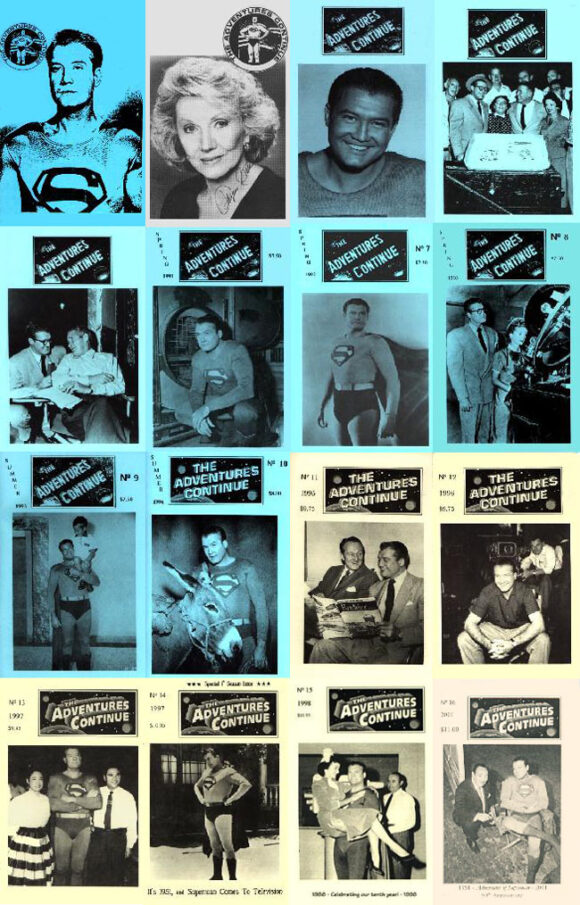
—
Louis Koza, (author of Mister Reeves):
It appears that Ace and Connie needed to be dealt with for having learned Superman’s secret identity. Until Superman could determine a resolution for his dilemma, he needed to seclude the criminal-intent couple far away from any communications. Superman left them on a mountain ridge with clothing, food, and a nearby cabin. He stated he would return with more food. Ace and Connie took it upon themselves to not trust Superman and then attempt to scale down the slippery slope. Clark’s smile at the closing moments means that his secret is safe, and of course Metropolis is rid of two criminals by their own means.
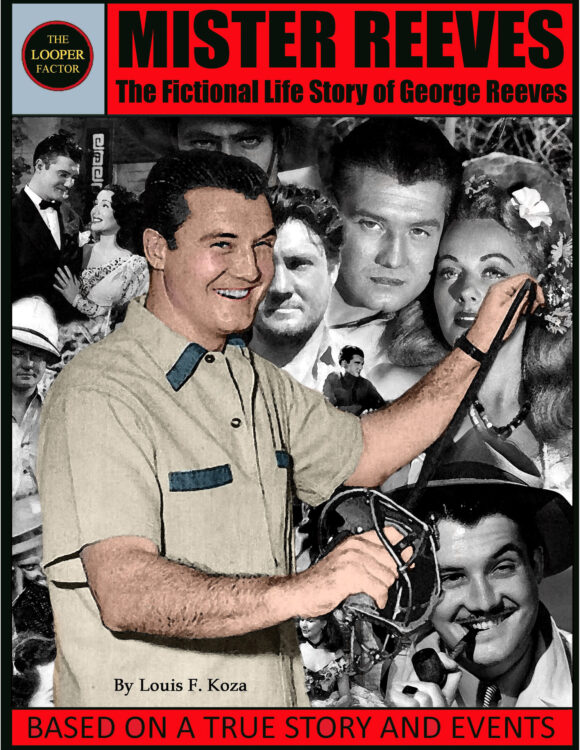
—
OK, so that’s 14 jurors. We did need an alternate, you know. And you can take part too, by leaving your own verdict in the comments!
But do be sure to listen to Another Exciting Episode in the Adventures of Superman. Anthony and I had a great time and I think you’ll have a lot of fun.
Up, up and away!
—
MORE
— GEORGE REEVES: 13 Times SUPERMAN Thought Doors Were Stupid. Click here.
— The TOP 13 ADVENTURES OF SUPERMAN Episodes – RANKED. Click here.

March 20, 2023
Murder? No. Manslaughter or criminal negligence…maybe.
BTW, it’s a very memorable episode. I watched the show in the 1960s as a child. The only episodes that I specifically remembered watching as a child were that one and the “Mole Men.”
March 20, 2023
I’m a huge fan and booster of Superman. I was disappointed in him when he killed Zod in “Man of Steel”; though I’ve come around to it in subsequent viewings of the film, I wish there had been a scene where he’d shown regret or remorse afterwards. But here, in “The Stolen Costume”… it was a different time, with different ethics. AOS season 1 was largely a “noir” show, and characters acted in “noir” fashion. So, noir (heh), I don’t think Superman committed murder.
I do want to address the whole “I never lie” bit. I think it comes from Superman The Movie, not the comics or AOS, and it was there primarily so Miss Teschmacher would believe him and free Superman when he promised to save her mother before Jimmy and Lois. But Superman lies all the time, mostly in the keeping of his secret identity – which is how this ties into “The Stolen Costume”. Of course, you could argue that SUPERMAN isn’t lying – it’s Clark Kent – but that’s semantics, since they are, in Jerry Siegel’s words, “One and Same!” In the comics, he lied as both characters frequently when he tricked criminals and even his best friends (a staple of the 50s and 60s stories). As I often say about the Beatles, “These people aren’t saints.” (Sadly, Superman and friends aren’t even real people, but that’s for another time.)
March 25, 2023
http://www.jimnolt.com/stolencostume2.htm
September 20, 2023
If you want to accuse Superman of murder just go to the Filmation 66 cartoon and the Parasite episode. And still you could call it self-defense.
September 20, 2023
That Parasite move is highly questionable! And what about the Iron Eater? Strands him alone on a planet! At least with the Tree Men of Arbora, he got him back home!
March 25, 2023
http://www.jimnolt.com/stolencostume3.htm
October 16, 2023
I’m in the process of reading “Flights of Fantasy: The Unauthorized But True Story of Radio & TV’s Adventures of Superman” by Michael Hayde…
I didn’t realize that “The Stolen Costume” is based on the Superman radio episode “Dead Men Tell No Tales.” On the radio episode, Superman tries to save them when he spots them trying to climb off the mountain, but he arrives too late.
Not sure that this fact changes anything but I found it interesting.
December 20, 2023
Did any “good” person ever die on THE ADVENTURES OF SUPERMAN show?